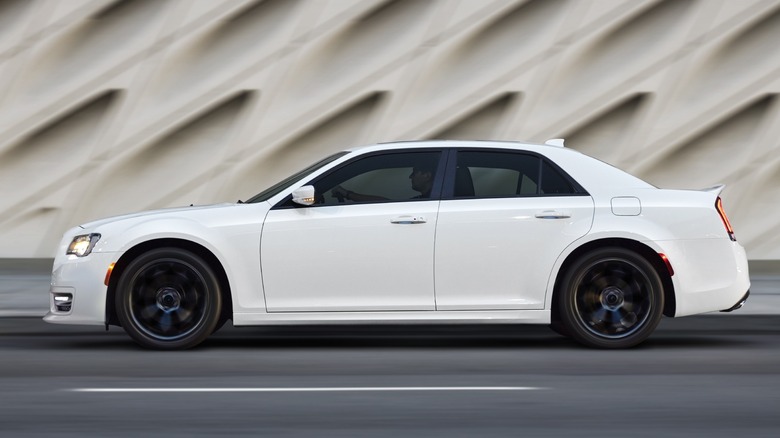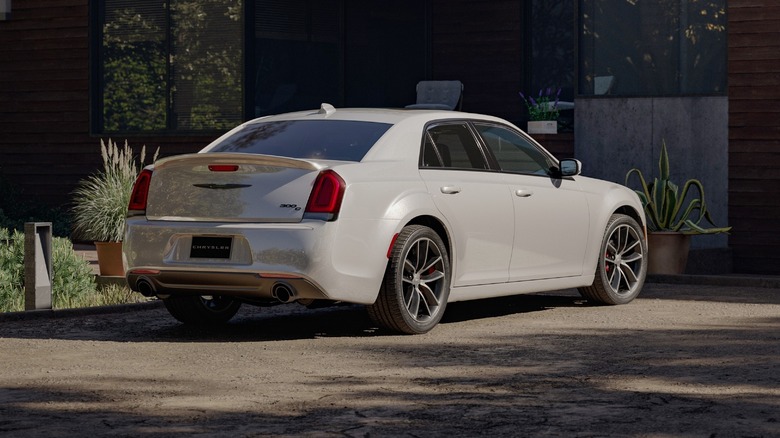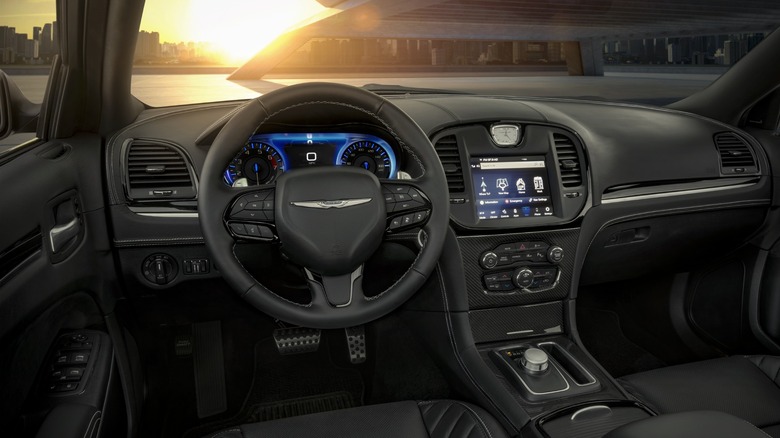Here's Why Chrysler Is Pulling The Plug On The 300 After 17 Years
Chrysler will slash its two-car range in half for the 2024 model year by giving up on the aging 300 sedan. It is going away after a long 17-year run, during which it has been overhauled and updated more times than we can remember to keep it competitive.
Believe it or not, the 2023 (and last) Chrysler 300 model year for the current generation is still related to the 300C introduced in 2004. It is considered the second generation of the model, which was launched in 2011 with a revised platform, improved suspension, a better interior, more technology, and new engines, although it was still essentially a reskinned and updated version of the 2004 car.
Even around the time of its introduction, the 300 was seen as a model trying to resurrect a dying breed of American car: the affordable, large V8 sedan, of which there weren't that many left even 20 years ago. With this in mind, the fact that it has remained on sale since and has proven quite successful until the end is a remarkable feat, but the times have caught up to Chrysler, now part of the Stellantis group, and it is now looking to enter the EV segment.
It was only a matter of time
With most manufacturers moving more toward electrification, especially since Tesla burst onto the scene and accelerated the adoption of electric vehicles over a decade ago, it just doesn't make sense for Chrysler to keep offering a sedan with such archaic underpinnings.
The Chrysler 300's LX platform, which it shares with the seventh-generation Dodge Charger, was updated and renamed LD in 2011, but it still borrowed heavily from the Mercedes W211 E-Class platform introduced in 2002. One of its limitations is that it doesn't support all-wheel drive if the car has a V8, which reduces the model's appeal specifically among those buyers who are looking for big and powerful sedans — offering all-wheel drive on the top engine is important in its segment of the market.
Safety is another key selling point, and the 300 can't match more modern cars when it comes to either passive or active safety aids. When the IIHS tested it in 2015, it found the 300 to be structurally sound through most of its crash tests, although the car suffered more deformation than many contemporary sedans in the small overlap crash test.
The 300 still does some things right
When it comes to active safety systems, which have become very advanced in recent years, to the point where cars today have the ability to drive themselves, the 300 isn't among the most advanced, but it's pretty good given its aforementioned platform constraints. It offers adaptive cruise control with stop-and-go functionality, forward collision warning with automatic braking to mitigate a crash, automatic high beams, and lane departure warning that can automatically steer you back into the lane if you stray.
Chrysler has done a good job of keeping the 300's exterior looking fresh, but compared to some of the latest sedan designs, it looks like it's from another era, with its almost cartoonishly simple slab-sided sedan shape. Inside, the 2023 model-year 300 hides its years well, with its modern-looking dashboard sporting a partially digital gauge cluster and an 8.4-inch infotainment screen with Apple CarPlay and Android Auto.
The quality of the interior was never the 300's strong suit. Reviewers criticized it for the cabin's outdated design and use of low-quality materials, but also praised it for being well screwed together and roomy. The car was also comfortable, and the sportier V8 variants handled pretty well too, providing keen drivers with plenty of enjoyment. Looking at a 300 today, it still has an unmatched presence. This has remained constant throughout its nearly 20-year stint, and it will be a defining characteristic of this car long after it's taken out of production. Combine this with the unmistakable growl of its V8, and you are left with a pretty memorable package that will still find fans for years to come.


